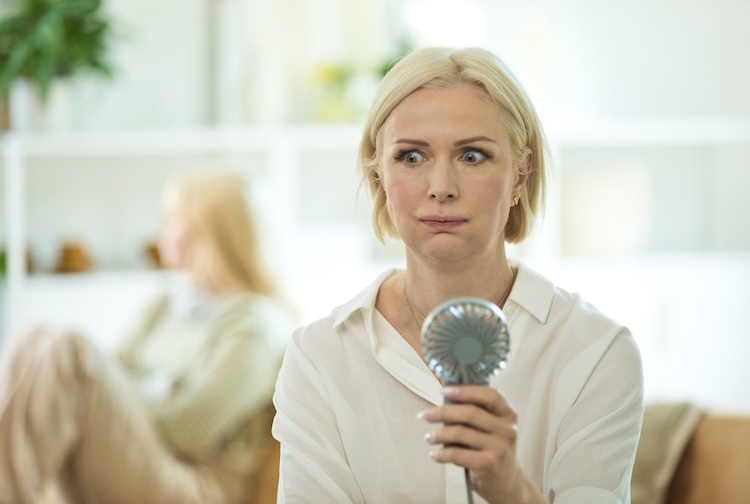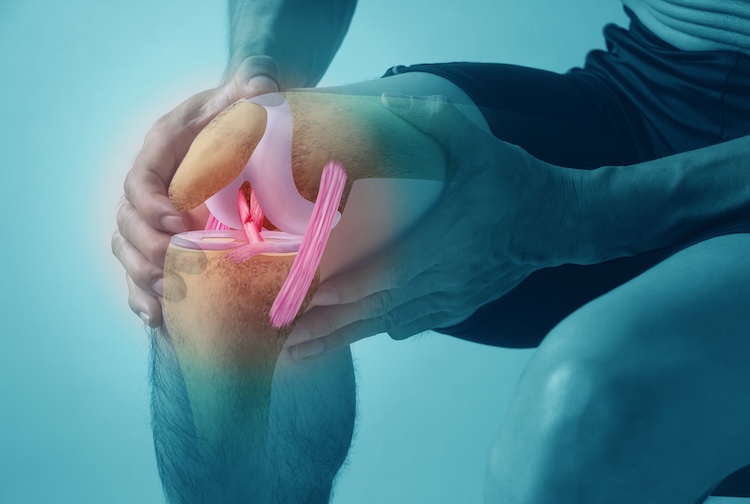A HOT take on how to survive perimenopause
A VCU Health doctor who specializes in these hormonal changes provides her best guidance for women.
June 06, 2025 Perimenopause is a phase of a woman’s life when their menstrual period stops. It is marked by hormonal changes, including hot flashes and insomnia. (Getty Images)
Perimenopause is a phase of a woman’s life when their menstrual period stops. It is marked by hormonal changes, including hot flashes and insomnia. (Getty Images)
By Leigh Farmer
Do you find yourself waking up in a pool of your own sweat when it’s not summertime?
Is your menstrual period more like a run-on sentence?
Are you experiencing so many hormonal changes that it feels almost like going through puberty all over again, but you’re a grown woman?
Well, you might be going through perimenopause. It’s a time in a woman’s life that happens at middle age and is often marked by extreme hormonal changes – night sweats, hot flashes and insomnia to name a few.
According to a survey published by the National Institutes of Health, perimenopause “remains poorly understood and under-addressed in healthcare” despite the fact that roughly two million women in the United States enter perimenopause each year.
Thankfully, VCU Health has an exceptional team of women’s health specialists, prepared to help navigate each stage of a woman’s life.
She has a special interest in caring for women across all stages of the menopause journey. As a board-certified obstetrician-gynecologist she is an active member of The Menopause Society. Limmer answered a few questions about this very common stage in a woman’s life in order to dispel some myths and help us understand it a bit better.
What is perimenopause?
Perimenopause is the word used to describe the handful of years before a woman’s menstrual period stops. There will be not-so-subtle signs that someone is entering the “peri” zone. This time is typically marked by irregularities in a woman’s menstrual cycle – too short, too long, too heavy. You name it! It can happen.
What other signs and symptoms come with perimenopause?
Symptoms can include night sweats, hot flashes, mood changes, sleep disruption, weight gain, joint pains, brain fog and vaginal dryness. If you are in your early 40s, you will likely begin to hear light chatter amongst your peers regarding some of these symptoms. These days, women tend to be more open about the changes to their bodies. Peer support can help – it's not easy to get through!
Symptoms can begin as many as five years before the final menstrual period. The average age of menopause (a full 12 months without a period) is 51 to 52 years old, but it can be normal to experience menopause any time after age 40. A small percentage can begin experiencing symptoms as early as the mid-30s.
When a woman has gone 12 months past their final menstrual period without bleeding, “perimenopause” is over and that woman is in “postmenopause.”
What is your best advice to limit or treat symptoms?
The most effective treatment for night sweats and hot flashes is hormone therapy containing estrogen. Women who have a uterus also need to take progesterone. Hormone therapy has been shown to also help with difficulty sleeping, mood changes and joint pain. Unfortunately, hormone therapy has not been shown to improve weight gain or brain fog associated with menopause.
In perimenopause, women need to focus on maintaining their physical health with regular strength training to avoid loss of muscle mass and loss of bone density. If you cannot take hormone therapy for medical reasons, there are effective alternative treatment options.
If you see a gynecologist regularly, should you still consider seeing someone who specializes in this hormonal change?
Women should see a women’s health provider when they are experiencing symptoms of perimenopause. There are many other health conditions that can mimic and/or complicate perimenopause, such as hypothyroidism, depression and anxiety. It is important that other conditions are ruled out or treated before attributing all changes to perimenopause.
Most gynecologists and many primary care physicians can manage perimenopausal symptoms, but if a woman does not receive helpful counseling, I recommend that she seek out a provider with an interest in or certification in menopause medicine.




